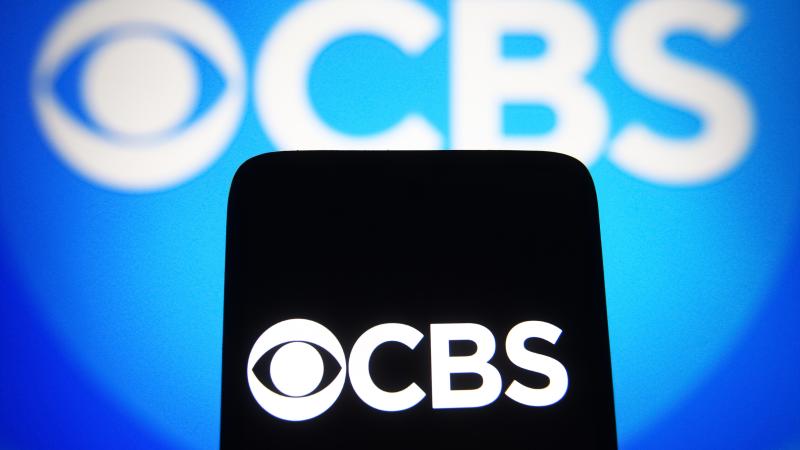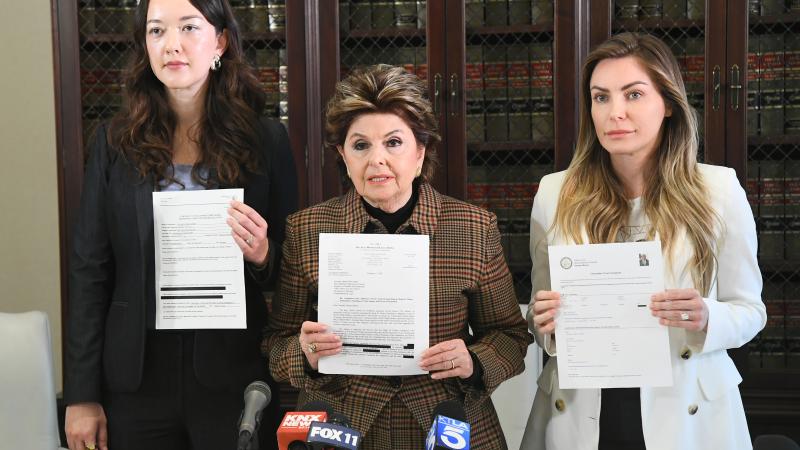Banks, financial services firms next to bow to 'woke left,' ban conservatives, warns Rep. Ted Budd
"It's just the next frontier for the radical left," said the North Carolina Republican, a member of the House Financial Services Committee.
A new frontier in "cancel culture" is looming on the horizon: Banking and financial services firms could ban conservative customers and others from industries targeted by the left, warns North Carolina Republican Rep. Ted Budd, a member of the House Financial Services Committee.
The targets appear to include Republican members of Congress who voted to challenge the 2020 election results (just as some Democrats did in 2017, 2005 and 2001 without facing financial backlash). Additional possible targeted industries range from fossil fuels and firearms to for-profit colleges and payday lenders.
Affirm, a company extending installment loans for consumers to use at the point of sale to finance a purchase, confirmed to The New York Times last month that "it severed ties with MyPillow." MyPillow CEO Mike Lindell, a prominent supporter of former President Trump, has come under fire for his disputed claims about election integrity during the 2020 election.
Rep. Ted Budd (R-N.C.), a member of the U.S. House Financial Services Committee, told "Just the News A.M." television program on Friday morning that financial institutions are coming under pressure from the left to deny services to customers, calling it "the next frontier for the radical left."
"I think all of them are feeling pressure right now," Budd said. "Just as we in elected office have to realize who our constituency is — for me, it's about 750,000 people across 10 counties in North Carolina — they have to realize who their constituents are. And that's depositors. That's real men and women go into work every day out there."
Budd, who owns a gun store and is a federally-licensed firearms dealer, said "the woke left" not only wants to push government agendas to the left, they also desire to push corporate agendas to the left.
"They want to be involved in proxy recommendations and board recommendations at every level of companies," Budd said. "I would encourage the leaders and companies to step up, be their own leaders and realize that they need to represent all of America."
In 2019, some conservatives called for online payment company PayPal to be boycotted after the CEO of PayPal announced it would use the Southern Poverty Law Center (SPLC) as a resource for them to help ban users. The SPLC is controversial among conservatives, who say the group targets conservatives, and Christians in particular, labeling Christian groups as "hate groups" or "extremists" because of their religious views.
"Cancel culture is a huge problem right now," Budd said. "The real problem is that we're seeing that fact checkers — and I would use SPLC as one of the fact checkers — and they're not checking facts. They're pushing their leftist agenda … I would encourage people not to use them, and to come up with their own agenda that represents the whole of America, not just the extreme left."
Calling the SPLC "not reliable," Tyler O'Neil, author of "Making Hate Pay: The Corruption of the Southern Poverty Law Center," told Just the News in an email, "Conservatives and those who rightly oppose this ramped-up cancel culture ... should pressure corporations to drop their reliance on this scandal-plagued smear factory."
Amazon still uses the SPLC "hate group" list to exclude nonprofits from Amazon Smile, O'Neil said. Online event management platform Eventbrite, meanwhile, blacklisted conservative national security nonprofit ACT for America, as has Hyatt Hotels, O'Neil reported.
Discover has refused to process donations to organizations on the SPLC list, according to O'Neil, while Vanco Payments cut off the small Roman Catholic nonprofit The Ruth Institute, citing the SPLC.
In 2017, O'Neil said, Google, working with investigative journalism nonprofit ProPublica, threatened to shut down conservative websites run by alleged "hate groups."
"Corporate America seems not to have noticed the devastating 2019 scandal involving claims of sexual harassment and racial discrimination at the Southern Poverty Law Center," O'Neil said, referring to the ousting of SPLC founder Morris Dees over allegations of sexual harrassment.
Dees has repeatedly denied the allegations in various media interviews, and his immediate successor has said in media interviews that she wants to improve the workplace culture at SPLC.
O'Neil said the Council on American-Islamic Relations and the Anti-Defamation League "often echo the SPLC's talking points against conservative organizations, although the ADL is more careful about restricting its accusations to anti-Semitism."
Gatekeepers are likely to rely on the SPLC, the ADL, and CAIR in fighting "hate," without considering "the SPLC's blatant bias in targeting conservative organizations in what former employees have described as a fundraising scam," O'Neil said.
Rep. Jason Smith (R-Mo.) told "Just the News AM" television program that Big Tech censorship questions are now expanding to other sectors of corporate America.
"A lot of big corporations are refusing to support elected officials because they don't like how they voted," Smith said. "They can do whatever they want ... clearly it's happening a lot out there."
Economist Joe LaVorgna, however, sees little reason to fear a political weaponization of the banking industry.
"I don't see it as an issue for the sector, which has faced many headwinds over the last decade plus," said LaVorgna, the chief economist for the Trump White House. "The sector is opportunistic, so canceling is not generally good business practice."
Under a plan called Operation Choke Point, the Obama administration sought to target banks doing business with companies deemed unfriendly by the left. The Trump administration officially ended Choke Point in August 2017.
American Enterprise Institute scholar Benjamin Zycher fears the Biden administration is poised to revive the Obama legacy of politicized lending.
"In one of the last executive actions of the Trump administration," Zycher wrote in RealClearMarkets, "the Office of the Comptroller of the Currency published an important final 'Fair Access to Financial Services' rule requiring that large banks and federal savings associations make lending decisions based upon 'individualized, quantitative risk-based analysis and management of customer risk.' Translation: The lenders are not to make such decisions on the basis of the political unpopularity (among leftists) of certain businesses."
With Trump gone, the Biden administration's Office of the Comptroller of the Currency announced last month it would pause Trump's Fair Access to Financial Services rule. The Biden White House press office did not respond to a query from Just the News about whether this could further polarize the country.
In January, Bloomberg News released a long list of companies, including financial services companies, which were either scaling back or canceling political donations generally or specifically targeting the 139 Republican representatives and eight GOP senators who voted to object to at least one state's electoral count. Among the institutions targeting those Republicans were some of the leading names in American finance, including American Express, Mastercard and Morgan Stanley.
















